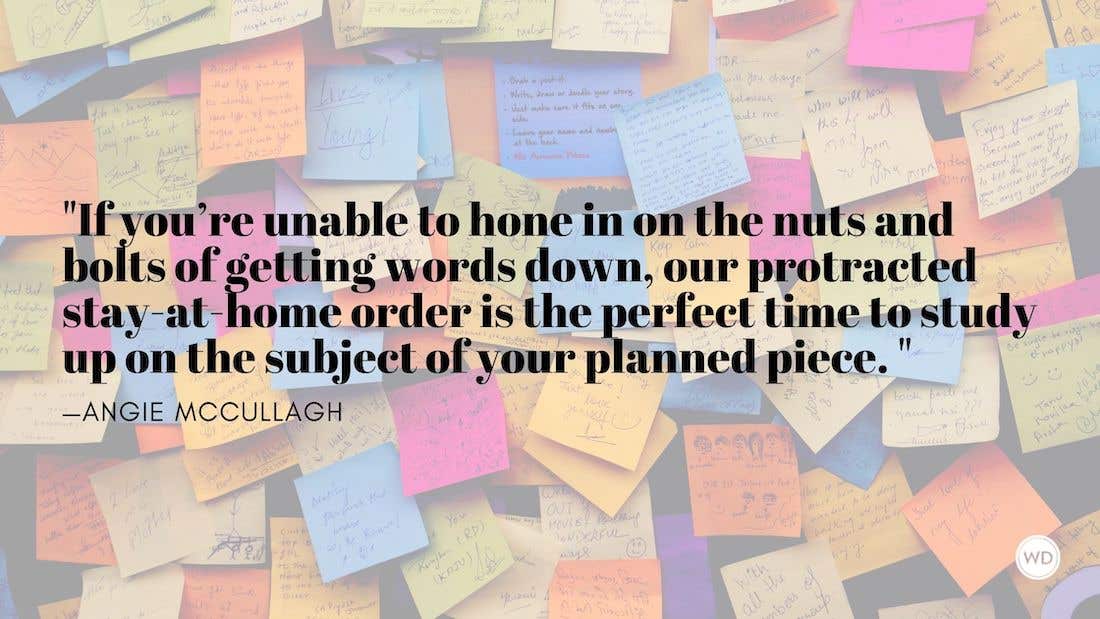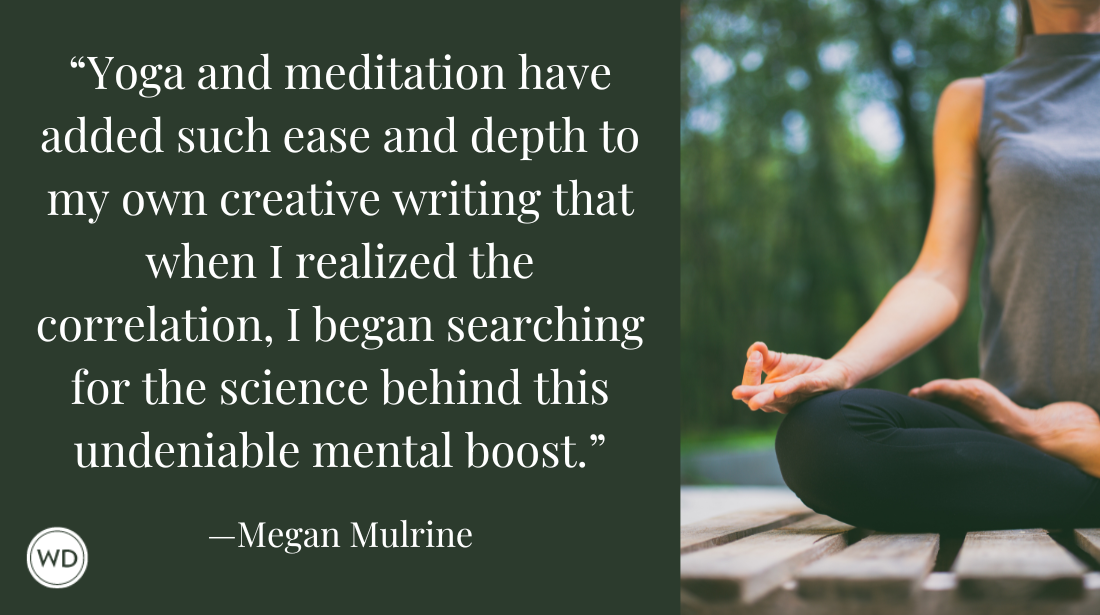The Four Energies of Writing: What’s Your Fuel?
How do you sustain your enthusiasm throughout a writing project—or even a writing career? It’s all about finding and focusing your energy. Learn to identify which of these four energies motivates your writing life or project.
Passion for a book is like an electrical impulse traveling down a wire, and that electrical impulse has to be strong enough to affect a lot of people, from the writer to the agent to the editor. Then from the editor to the publicist who needs to get the book reviewed, the art director who is responsible for coming up with the right cover, the sales reps who sell the book to the store buyers. Then from the store’s main buyer to the individual booksellers and, eventually, to the customer.
Follow your energy
It’s a bad idea to write a book just to write it. I read once of a would-be writer who asked Henry Miller (author of Tropic of Cancer) how he should go about deciding whether to be a writer. Miller replied, “If you can’t not be a writer, then be a writer.”
I feel the same way about writing books. If you decide you could skip writing it, don’t bother. The book should be compelling enough for you that it has to be written. That requires energy.
Science fiction author Ray Bradbury wrote, in Zen in the Art of Writing, “... [if I were] asked to name the most important items in a writer’s make-up, the things that shape his material and rush him along the road to where he wants to go, I could only warn him to look to his zest, to see his gusto.” How do you find or connect with the gusto and zest—also known as the juice—that will fuel your writing through the book creation and publishing process? By identifying and connecting with one or more of the four writing energies.
The Four Writing Energies
I believe there are four energies that drive the writing process: blissed, blessed, dissed, and pissed (two are “positive” and two “negative”—guess which are which!).
Positive Energies. Writers can be blissed (excited or passionate about their subjects or the writing process itself) or blessed (encouraged by someone who believes in them or their writing abilities, or just in the right place at the right time). When these positive energies are released, they can fuel a book or a lifetime of writing.
Blissed is the excited, passionate love or fascination for some activity or subject. Some writers just love to write. Others are fascinated with the subject of their writing. Some are obsessed with or taken over by characters or the research they do for the book.
Blessed is the energy released when someone encourages you in your writing life or believes in your promise as a writer. It might be a high school English teacher, or a mentor in the form of another writer. Another way to be blessed is to be in the right place at the right time. Blessed is meeting an editor or an agent unexpectedly. You might see something, read something, or hear something that gives you inspiration for a book project. Of course, you can do some things to make your own luck (as the saying goes, “I’m a great believer in luck. I find that the harder I work, the luckier I get”). Call it serendipity or being blessed or working hard to get luckier. When it happens, it can sometimes release the writer in you.
Negative Energies. Writing can be like photography: You can use the negative to develop. For many writers, the energies that drive their work come from a negative motivation—they are so upset, angry, or unhappy that they feel compelled to express those emotions through writing. Or they want to prove someone wrong, or right some injustice in the world through their writing.
Dissed is the category of negative energies that includes the experiences of being wounded emotionally, cursed or put down by others, or disrespected or rejected. In order to have your wound or someone’s curse fuel your writing process, the hurt or negative energy needs to be turned into creative energy, informing or driving your writing. It’s not enough to be wounded; you must find a way to turn that wound into energy for your writing. Otherwise, you would just withdraw from life or risk, as many of my psychotherapy clients had done when they sought my help.
Somehow writers, even if they are not all mentally or emotionally healthy, have found a way to transmute their hurts into productive writing. Sometimes this writing helps to heal the hurts; other times the hurt never heals but continues to fuel the writer’s creative life, thus resulting in some meaning being derived from the pain. This meaning itself can be healing, even if the original pain remains.
Make no mistake. I have seen screeds full of anger, self-pity, or hate that I think will never (and should never) be published. They are simply expressions of the author’s
pain, more like a journal entry than a book. They are self-indulgent and should be kept private because they have no public utility. In order to turn that pain and anger into a book, the writing needs to somehow turn the personal into the universal. It needs to be written well and transmuted into something that contributes and speaks to others.
Pissed is similar to dissed in that it often arises from disrespect or upset, but it manifests more as anger and righteous indignation than hurt. I have found that pissed usually arises from being upset about some social injustice or incompetence, rather than personal injury.
Exercise: Find the Juice
- What are you passionate about?
- What do you care about so deeply or get so excited about that you talk about it to anyone who will listen?
- Do you love the process of writing itself?
- Who has encouraged your writing?
- Who would be proved wrong if you wrote and succeeded with your writing?
- Who has criticized, cursed, or discouraged you to the extent that it makes you want to prove them wrong?
- What upsets you so much that you are compelled to write about it or include the theme in your book?
- When have you (or someone you cared about) been disrespected in a way that makes you want to write?
- Where have you been lucky enough to be in the right place at the right time in regard to your writing?
- What could you do to increase the odds of being lucky in respect to finding inspiration?
- What are you afraid to write but know is a deep truth?
- Who are you afraid will disapprove of your writing or be upset by it?
- What are you afraid will happen if you write?
- What fears could you write and perhaps work through by writing?
Eliminate that "where to begin?" trepidation that can impede the novel-writing process. Consider:
The You Can Write a Novel Kit
Become a WD VIP and Save 10%:
Get a 1-year pass to WritersMarket.com, a 1-year subscription to Writer's Digest magazine and 10% off all WritersDigestShop.com orders! Click here to join.
Also check out these items from the Writer's Digest's collection:
Writer's Digest Elements Of Writing Fiction: Beginnings, Middles & Ends
Writer's Digest Elements Of Writing Fiction: Scene & Structure
Writer's Digest Elements Of Writing Fiction: Description
Writer's Digest Elements Of Writing Fiction: Characters & Viewpoint
Writer's Digest No More Rejections
Writer's Digest Weekly Planner
Writer's Digest How to Land a Literary Agent (On-Demand Webinar)
Writer's Digest Magazine One-Year Subscription
Writer's Digest 10 Years of Writer's Digest on CD: 2000-2009









